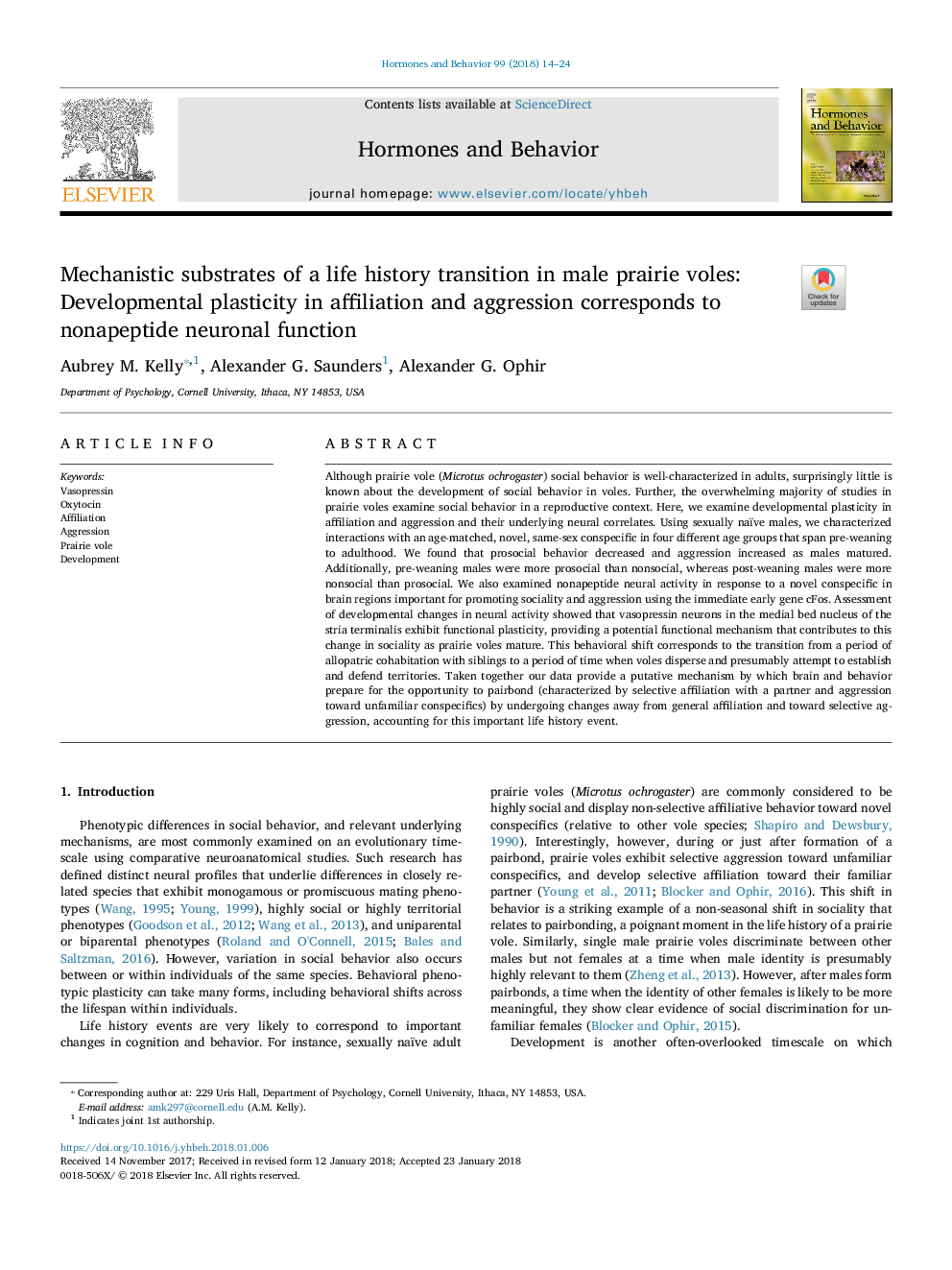ترجمه فارسی عنوان مقاله
بستر مکانیکی انتقال گذار تاریخی در فولیکولهای مردانه: پلاستیک گرایش به وابستگی و پرخاشگری مربوط به عملکرد عصبی غیرپپتیدی است
عنوان انگلیسی
Mechanistic substrates of a life history transition in male prairie voles: Developmental plasticity in affiliation and aggression corresponds to nonapeptide neuronal function
| کد مقاله | سال انتشار | تعداد صفحات مقاله انگلیسی |
|---|---|---|
| 114360 | 2018 | 11 صفحه PDF |
منبع

Publisher : Elsevier - Science Direct (الزویر - ساینس دایرکت)
Journal : Hormones and Behavior, Volume 99, March 2018, Pages 14-24
ترجمه کلمات کلیدی
وازوپرسین، اکسی توسین، وابستگی، پرخاشگری دروازه پرید توسعه،
کلمات کلیدی انگلیسی
Vasopressin; Oxytocin; Affiliation; Aggression; Prairie vole; Development;

